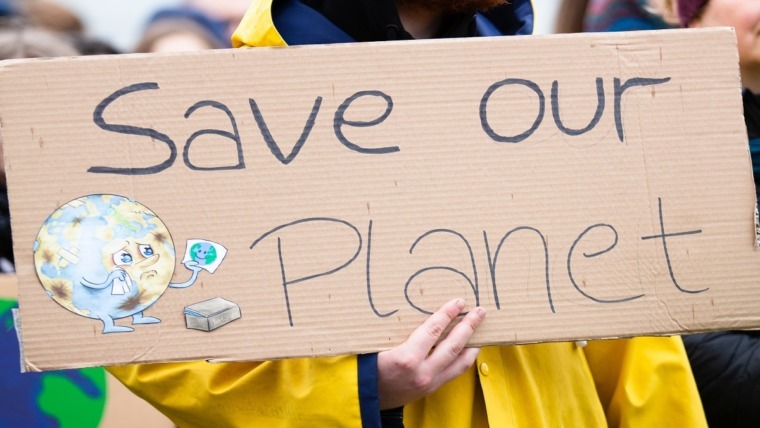
Written by Steve Nicholson, Director of Sustainability, Solaris Paper
The internet provides us with a breadth of information at our finger tips. We can learn more about the world, and even steps to take to improve our commitments to environmental sustainability. However, the internet can also be filled with misinformation and claims which are not always entirely true. In the sustainability space, there are often myths or half-truths which make embracing environmental sustainability more difficult than it needs to be. It’s important to understand the thinking around these myths to have a better grasp on what families and households can do to help limit climate change.
Here are four environmental sustainability claims that are worth reconsidering.
Myth 1: Sustainability Means Going Green

Sustainability is often paired with the term going green. It suggests returning to nature and removing anything produced by artificial means from your household and life. However, this is an unrealistic goal for most people. Sustainability, instead, is about finding alternate methods to achieve the same technological advancements which are present today. The goal of sustainability is not to stop using cars outright or never have your heating on. It’s about conscious consumption at an individual level and committing at a societal level to looking for and finding alternate fuels to power our cars and homes. This includes looking at how we increase the use of things like biofuels, solar panels, and electricity from other renewable resources. But this is just the start. There is inevitably a whole range of other alternative fuels and solutions waiting for us in the future and science will play a key role in finding these solutions and replacing the current ones that are simply unsustainable. This ties into our second sustainability myth.
Myth 2: Being Environmentally Sustainable Means Removing Paper
There’s a common theme that comes up when discussing environmental sustainability in the home or office: to be environmentally friendly, stop using paper. This stems from the thinking that because trees must be harvested to create paper, using paper results in fewer trees in our forests to remove carbon dioxide from the atmosphere.
However, trees are a renewable resource and therefore do not create an environmental issue provided they are grown, harvested and processed sustainably. What does sustainable paper production look like? A sustainable company harvesting timber will replant the same number of trees it is harvesting, to maintain a balance. After all, resources are only renewable if steps are taken to allow them to replenish.
Paper is one of the most sustainable products on the planet because the resource it originates from is renewable and it can be efficiently recycled. Most paper products can be recycled up to eight times before the fibres can no longer be reused.
It’s taken a while, but we’ve finally realised that the currently established means of mass-energy production, such as coal and gas-fired power plants, are not viable solutions for our future.
The argument that is often made in response to a suggestion of changing the way we produce energy is that securing alternative fuels is an expensive endeavour. But is it really?

Myth 3: Sustainability Is Expensive
This is a half-myth that has been proven to be false in the long run. In the short run, like any significant infrastructure change or innovation, environmental sustainability will likely be more expensive as legacy systems and tools are replaced. It’s generally easier to keep a legacy system in place than to upgrade to something more sustainable.
This is true for most things. For example, it costs money to upgrade or build new roads or railways as opposed to just using the old, pre-existing ones. But it must be done to meet the changing needs of the community, whether that be roads with greater capacity and safety or faster trains. Where the true benefits are realised is not in the initial financial outlay but in the longer term.
Similar to a road upgrade, the initial cost to install solar panels on your home can be expensive. However, in the long run, the household can generate its own electricity from a renewable resource without relying on using a power grid that generates electricity from coal-powered sources.
On a personal level, switching to a reusable travel cup for the morning coffee run could also lead to a long-term benefit. Some cafes will now provide a discount for people using their own cups. It’s not only one less cup in landfill, you’re also getting your daily coffee for less.
Myth 4: It’s Up To Governments To Lead The Charge With Sustainability
While governments do play an important role in driving widespread change across businesses, consumers have demonstrated they have enormous power to influence sustainability in big business. Consumer’s voicing their opinion and choosing to deal with companies who have made commitments to environmental sustainability has caused many big businesses to reassess and determine their contributions to environmental sustainability.
Global organisations like Coca Cola, McDonald’s, and even Australian airlines like Qantas have made commitments to cut down on single-use plastic and overall contributions to waste, due to consumer backlash. Many Australian businesses, including the major supermarkets, have banned plastic bags. Restaurant chains and cultural venues are switching to paper or metal straws, and many businesses are outlawing single-use plastics within their production process. Consumers have proved to be extremely influential in this creating important change with minimal government involvement.
Embracing sustainable practises is not as daunting as the internet would make it out to be. By understanding what sustainability means, and how individuals, households and businesses can make a positive impact, we’ll be better positioned to push forward and embrace change for the better.
Common Environmental Sustainability Misconceptions Common Environmental Sustainability Misconceptions Common Environmental Sustainability Misconceptions Common Environmental Sustainability Misconceptions



